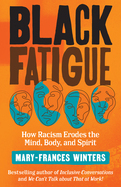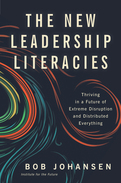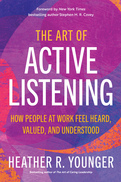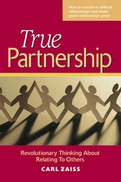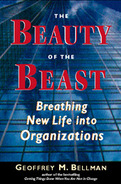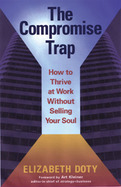2020
Black people, young and old, are fatigued, says award-winning diversity and inclusion leader Mary-Frances Winters. It is physically, mentally, and emotionally draining to continue to experience inequities and even atrocities, day after day, when justice is a God-given and legislated right. And it is exhausting to have to constantly explain this to white people, even—and especially—well-meaning white people, who fall prey to white fragility and too often are unwittingly complicit in upholding the very systems they say they want dismantled.
This book, designed to illuminate the myriad dire consequences of “living while Black,” came at the urging of Winters's Black friends and colleagues. Winters describes how in every aspect of life—from economics to education, work, criminal justice, and, very importantly, health outcomes—for the most part, the trajectory for Black people is not improving. It is paradoxical that, with all the attention focused over the last fifty years on social justice and diversity and inclusion, little progress has been made in actualizing the vision of an equitable society.
Black people are quite literally sick and tired of being sick and tired. Winters writes that “my hope for this book is that it will provide a comprehensive summary of the consequences of Black fatigue, and awaken activism in those who care about equity and justice—those who care that intergenerational fatigue is tearing at the very core of a whole race of people who are simply asking for what they deserve.”
It's too late to catch up, but it's a great time to leapfrog. Noted futurist Bob Johansen goes beyond skills and competencies to propose five new leadership literacies—combinations of disciplines, practices, and worldviews—that will be needed to thrive in a VUCA world of increasing volatility, uncertainty, complexity, and ambiguity. This book shows how to (1) forecast likely futures so you can “look back” and make sure you're prepared now for the changes to come, (2) use low-risk gaming spaces to work through your concerns about the future and hone your leadership skills, (3) lead shape-shifting organizations where you can't just tell people what to do, (4) be a dynamic presence even when you're not there in person, and (5) keep your personal energy high and transmit that energy throughout your organization.
This visionary book provides a vivid description of the ideal talent profile for future leaders. It is written for current, rising star, and aspiring leaders; talent scouts searching for leaders; and executive coaches seeking a fresh view of how leaders will need to prepare. To get ready for this future, we will all need new leadership literacies.
When employees, colleagues, and customers are not being heard, organizational culture, employee happiness, and overall organizational success will suffer. How well do you listen?
Active listening is the doorway to increased belonging, loyalty, profitability, innovation, and so much more. It is the difference between thinking we understand what people want and knowing what they want. Want to build stronger relationships, avoid misunderstandings, and anticipate problems before they surface at work?
All you have to do is listen.
The Art of Active Listening introduces a 5-step framework that shows you how to listen successfully and act upon what you are hearing. Readers will discover how to:
1. Recognize the unsaid
2. Seek to understand
3. Decode
4. Act
5. Close the loop
Backed by her personal review of over 30,000 employee and customer surveys and facilitation of 100's of focus groups, Younger discovered one universal truth: We all want to be heard. We want our voices to matter. We want the work we do to matter.
When we get this right - when we listen to our employees and customers and care about them not just for what they can do but for who they ARE - they can and will move mountains.
Using the tools provided in this book, you can implement active listening, regardless of whether you're in-person or virtual, that benefits all team members and customers, strengthens overall engagement, improves organizational culture and creates a space for everyone to have a voice.
When those at work feel heard, they will do whatever it takes to achieve outcomes that serve your relationship and your organization.
2002
"We are all capable of producing more than we typically do. The very nature of our relationships undermines individual and organizational effectiveness." With this uncompromising statement, author Carl Zaiss takes us on an inspiring journey that opens the door to unprecedented levels of individual and organizational performance.
Written for today's complex business arena and rapidly changing world, True Partnership - Revolutionary Thinking About Relating To Others, presents an in-depth look at this mind-altering new perspective for moving beyond the issues and constraints we all face as individuals and groups. It provides a provocative and spellbinding look at how what we take for granted actually sabotages our efforts at improving our own effectiveness and the productivity of the businesses, institutions, and organizations to which we belong.
True Partnership exposes the personal, organizational, and social costs of "the drift." The instinctive and taken-for-granted way of relating limits our effectiveness. The book exposes the four mistaken beliefs that form the drift and keep us from building productive relationships: seeing ourselves as separate and autonomous, relating to others through power and control, having an either/or mentality, and seeing the world as fixed and predetermined. Without distinguishing these four characteristics of the drift, they become our blind spot and sabotage any attempt at improving our effectiveness.
One of the common strategies for improving our ability to live and work together is to build a partnership. It refers to a relationship between people with an emphasis on teamwork and collaboration. Yet, most of what we call partnership is not and most partnerships do not access what is really possible. Due to the drift - the underlying nature of our relationships - our partnerships are often superficial and cosmetic.
True Partnership presents a new perspective, a new context, for our relationships generated by a fundamental shift in the way we, as individuals see the world. True partnership is a state of mind, not a type of relationship. It is a framework of relating to others that has an impact on each and every interaction. The four principles of true partnership include: seeing ourselves as interdependent parts of the whole, connecting to others through communication, operating from a both/and mentality, and relating to our world as observer-created.
True Partnership provides access to highly effective relationships and extraordinary levels of performance. This book challenges people to rethink their basic assumptions and adopt a revolutionary new mindset about their relationships and how they go about producing results at work and at home.
True Partnership is a powerful tool for anyone concerned about improving individual and organizational excellence.
- Shows how, by focusing on the quality of our relationships with people rather than trying to manipulate them into serving our purposes, we can actually achieve more of our goals.
- Exposes the limitations of traditional performance improvement strategies.
- Offers a deeper understanding of the often used but seldom understood term "partnership".
- Provides a wealth of examples and real-life stories showing how this new framework has provided people with extraordinary levels of satisfaction and accomplishment.
- A new perspective on organizations from Geoff Bellman, bestselling author of Getting Things Done When You Are Not in Charge (over 80,000 copies sold) and The Consultant's Calling (over 40,000 copies sold)
- Helps us identify what we love and hate about organizations-and how this affects our success
- Offers eight aspirations and twenty assertions that guide our discovery of new work alternatives for individuals, work groups, and organizations
2009


